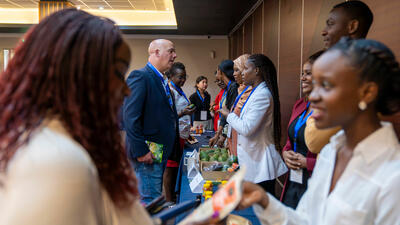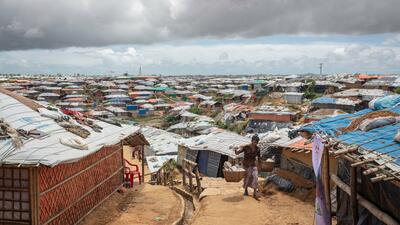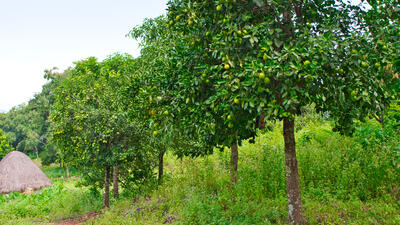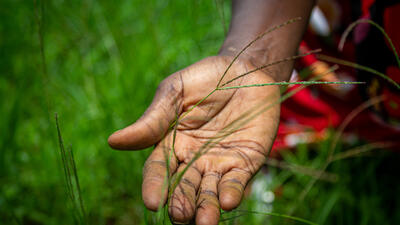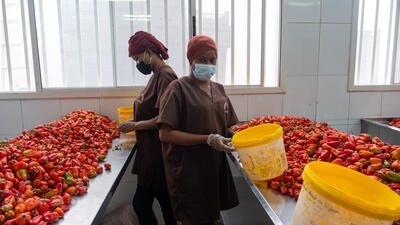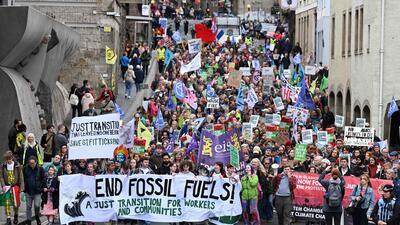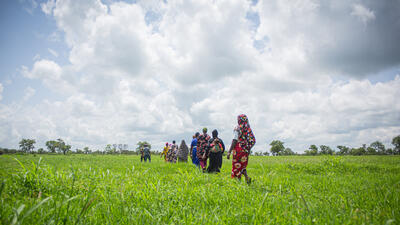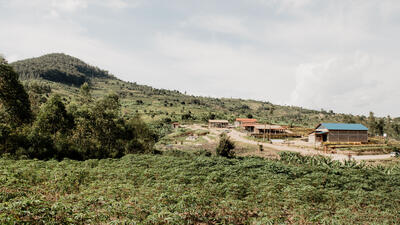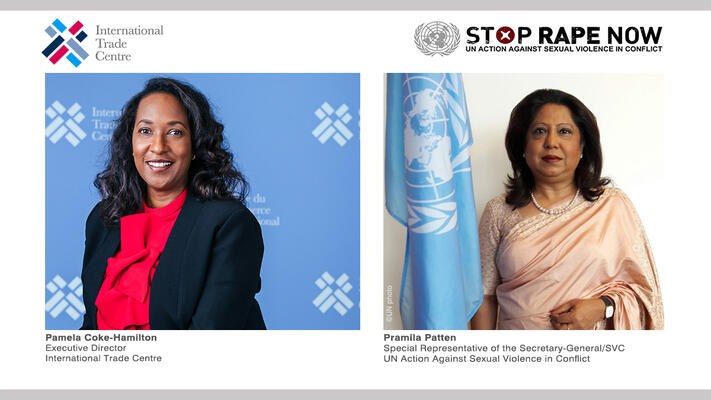
Why is women’s economic empowerment an effective tool against sexual violence?
A 7-minute inspirational interview on why every woman everywhere, should be empowered to chart their own economic path.
In celebration of International Women’s Day, the International Trade Centre’s Executive Director, Pamela Coke Hamilton and the Special Representative of the Secretary General on Sexual Violence in Conflict, Pramila Patten share on the importance of women’s economic empowerment. ITC joined the UN Action Network Against Sexual Violence in Conflict in December 2021.
- SRSG, what would you like to achieve for women and girls?
I truly hope we can eradicate the scourge of conflict related sexual violence (CSRV) once and for all. My vision in leading the UN Action Network is to embody the One UN approach to prevent and respond to CRSV. The network does this by addressing the root causes of sexual violence which disproportionately affect women and girls. We challenge gender inequality and discrimination, marginalization, and poverty as some of the main drivers of CRSV.
We are currently 21 UN organizations, with the potential to grow. I count on each entity to contribute their expertise and resources to foster national ownership and develop creative, sustainable, and survivor-centred responses to CSRV.
Investment in support of survivors, their families, and communities is critical. We must mitigate the devastating mental, physical, social, and economic effects of sexual violence. This is what I am committed to doing.
- ED, why did ITC decide to join the UN Action Network?
When SRSG Patten shared about the dire situation of women and girls who were at the mercy of all forms of sexual violence, I felt compelled to act. How could we not get involved?
In our new strategic plan, ITC envisions a world where trade builds inclusive, sustainable and prosperous economies. This includes women and girls whose rights are being violated. The pandemic, coupled with humanitarian and security crises, have eroded gender equality gains.
Women and girls have to be at the centre of the rebuilding efforts. ITC has committed to deepen our work on the economic empowerment of women, youth and refugees. I am convinced that women’s economic empowerment can play a critical role as a preventative measure against CRSV and to support survivors in their recovery.
- SRSG, how can economic empowerment of women change the game?
As wars grind on, they grind down the hopes of economic and social opportunities of entire generations. Our survivor-centred approach demands that survivors are heard and that their requests are reflected in all policies and programmatic decisions.
Through one of our economic empowerment projects in Somalia, we supported women formerly associated with Al-Shabaab, to receive basic education, business development and livelihood skills training to enable them to rebuild their lives. For example, some of the women pooled their money to start a collaborative business that built a small cooperative in goat-keeping and livestock trade.
The programme also contributed to reconciliation efforts within communities by promoting economic and personal resilience, social integration, and community engagement. This was a crucial step in empowering women to become active members of their community and contribute to peacebuilding processes.
- ED, what has been ITCs experience in economically empowering women in fragile settings?
ITC has established an excellent track record for women’s economic empowerment through our SheTrades Initiative. We have achieved our ambitious goal of connecting 3 million women to markets. But we won’t stop there! Not until every woman ever where has the right to a decent income, employment, and a voice in shaping their economic future.
We are also active in several countries working with migrants, refugees and internally displaced persons. From Kenya to Mali, Gaza to Somalia, our teams are helping women to develop new skills, connecting them to global markets and value chains and creating gender inclusive employment and income opportunities.
I am proud of our teams who often work in challenging contexts and believe that we can accelerate economic empowerment to become part of the multi sectoral support provided to survivors of CRSV.
- SRSG Patten, on International Women’s Day, what message do you want to send to the international community?
We are continually challenged by rapidly evolving emergencies and intersecting conflict dynamics - just take a look at what is unfolding in Ukraine, Afghanistan, Ethiopia, and Myanmar. We need to prioritize women’s rights to dignity, safety, and wellbeing as a core value for an inclusive and prosperous future.
In the 19 conflict and post-conflict countries currently covered by my mandate, widespread sexual violence is still a devastating reality. Women’s civil society organizations and service providers work tirelessly in partnership with UN Action to respond to these needs. I commend them for their dedication and courage.
UN Action has supported over 50 programmes in 17 conflict-affected countries. But this support is not enough. My message is quite clear, as I have launched an appeal to raise US 100 million by 2026 for the CSRV multi-partner trust fund. I urge governments, the private sector and philanthropists to fund CSRV programming, commensurate with the scale of the needs of survivors.
ED, on International Women’s Day, what message do you want to send to the international community?
I wish to thank the governments and private sector partners who have trusted ITC to deliver for women and girls. You have shown your commitment to gender equality. Without you, most of our programming for women in vulnerable settings would not have been possible.
But now we must ramp up efforts. We have to put gas to the pedal as the world is constantly changing gears. As we all continue to witness the war in Ukraine, we are ever reminded that geopolitical conflicts are showing no signs of slowing down. Therefore, the threat of CRSV remains in sight.
ITC chooses to stand in solidarity with survivors of CRSV to say, “No to sexual violence!” We have seen the transformative power of economic empowerment activities on women. We want to see that scale up for all women. A sustainable tomorrow cannot be possible for women as long as any of us remains at risk of sexual assault.




